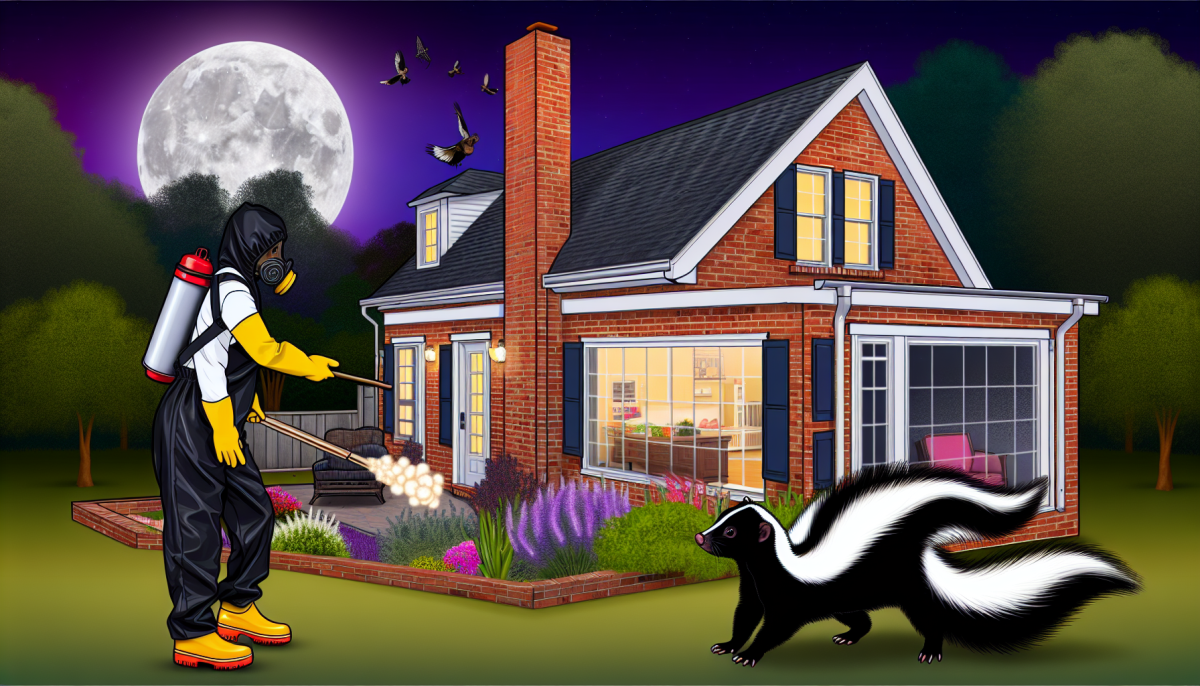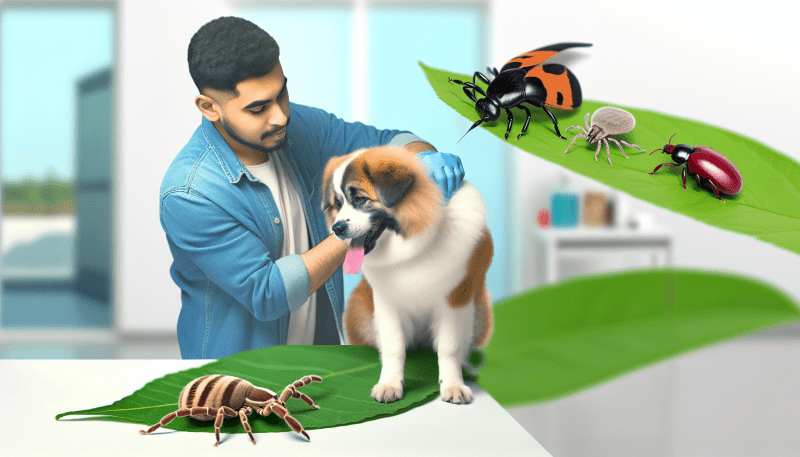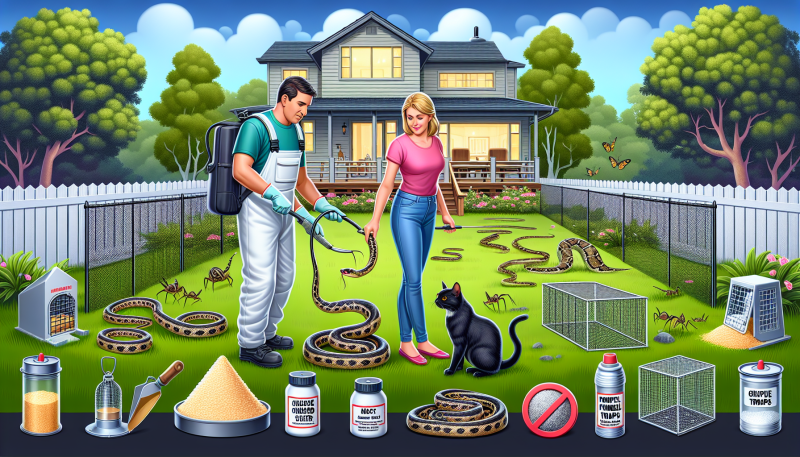Understanding skunk behavior is key to effective skunk control. These little critters are mostly nocturnal, meaning they're active at night and tend to be shy around humans. If you spot one during the day, it might indicate an issue, as sick skunks may venture out when they normally wouldn’t. They’re usually low-key, preferring to rummage around your trash or gardens for food.
Skunks are omnivores, so their diet consists of insects, fruits, and some small animals. This munching habit can lead them to your backyard, especially if you have a garden or a pet food bowl outside. Keep in mind that they’re also burrowers, so they might make themselves at home under decks, sheds, or porches if there’s a cozy spot to settle in.
When it comes to marking their territory, skunks have a strong sense of smell and often leave their mark. They might dig a few holes in the ground as they search for food or create latrines in specific areas. Knowing these signs can help you identify if skunks are frequent visitors and guide your skunk control efforts.
While skunks are known for their infamous spray, they're usually non-aggressive and will avoid conflict if given the chance. If you encounter a skunk in your yard, just give it space, and it’ll likely wander off on its own. If you're facing a bigger issue with them setting up permanent residence, exploring skunk control options can help keep your property safe and free from unwanted visits.
Best Deterrents for Skunks in Your Yard
Dealing with skunks in your yard can be tricky, but there are several effective deterrents to keep them at bay. Skunk control starts with understanding their habits. These furry little creatures are attracted to food sources, so your first step is to eliminate anything that might lure them in.
Here are some reliable deterrents you can try:
Each of these tips plays a role in effective skunk control. By making your yard less appealing to skunks, you can enjoy your outdoor space without worrying about unwanted visitors. Remember, the key is to be consistent with your methods for the best results.
Safe Trapping Methods for Skunk Removal
If you’re facing a skunk problem at home, safe trapping methods can be your best bet for skunk control. It’s important to ensure that any approach you take is humane and effective. Let’s dive into some strategies for trapping these furry critters safely.
First off, you’ll want to choose the right kind of trap. A live cage trap is a popular option because it captures skunks without harming them. Be sure to pick one that’s sturdy and large enough to accommodate a skunk comfortably. Look for features like a spring-loaded door that shuts quickly, preventing escape once the skunk is inside.
Next, baiting the trap is key to success. Skunks are attracted to strong-smelling foods. Some of the best options include:
Place the bait at the back of the trap to entice the skunk in completely. Make sure to set the trap in a quiet, low-traffic area of your yard to increase the chances of a catch.
Once you’ve trapped a skunk, it’s crucial to handle the situation properly. Avoid approaching or startling the skunk, as this can lead to spraying. Cover the trap with a cloth to help calm the skunk and transport it safely to a designated relocation area—check local regulations to find the safest and legal options for releasing it.
Preventing Skunks from Returning to Your Home
Once you've successfully dealt with a skunk situation, the last thing you want is for those little critters to return. Luckily, there are several effective skunk control tips you can put into action to keep them at bay.
First, make sure to seal any potential entry points around your home. Skunks love to find cozy spaces to hide in, so check your attic, basement, and crawl spaces for holes or gaps. Use materials like metal mesh, caulk, or even concrete to block these openings. A skunk is less likely to settle down if they can't find a nice spot to call home!
Another important step in skunk control is to manage the food sources around your property. Skunks are notorious scavengers and will happily munch on pet food left outside, garbage cans that aren’t secured, and fallen fruits or nuts. Secure your trash bins with tight-fitting lids and bring in any pet food or treats at night. Keeping your yard clean can make it less appealing for skunks.
Lastly, consider using natural deterrents. Things like citrus peels, garlic, or even commercial skunk repellent sprays can help keep them away. Sprinkling these around areas they might approach can signal that they should look elsewhere. A little bit of prevention goes a long way in skunk control!



